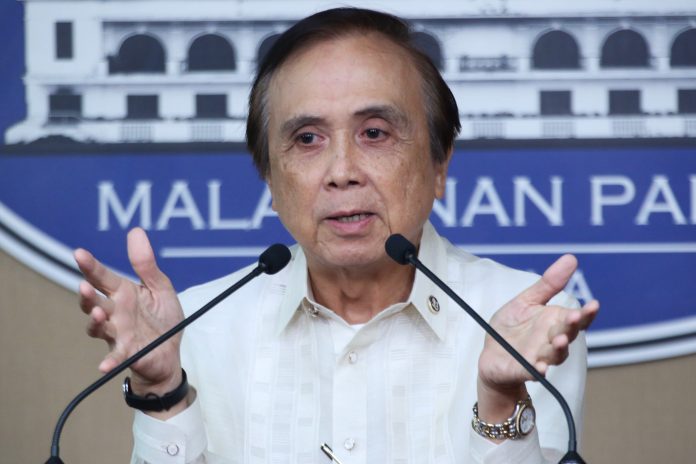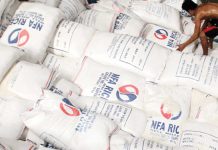
MANILA – The Philippines is open to Chinese aid and investment to spur its economy despite limited public support for letting Beijing’s checkbook diplomacy dictate the future of the Southeast Asian country, a senior Filipino government official says.
“China has promised more funding for more projects,” Socioeconomic Planning secretary Ernesto Pernia told NNA in Osaka during a recent visit to Japan to attend a meeting for infrastructure development cooperation with the Japanese government.
Under its “Build, Build, Build” program, the Philippines plans to invest a total of 8.3 trillion pesos ($160 billion) in infrastructure and social services. The government has earmarked 2.2 trillion pesos for 75 big-ticket projects such as the Metro Manila Subway, the nation’s first subway system.
Funding for 56 of the projects will come from official aid from major economies, said Pernia, who concurrently serves as director general of the National Economic and Development Authority.
During a meeting in Manila last November, President Rodrigo Duterte and Chinese President Xi Jinping agreed on China’s participation in the BBB program along with joint exploration of natural resources, namely oil and gas in the disputed South China Sea.
China has for years asserted its sovereignty over a number of islands and reefs in the South China Sea, also claimed by the Philippines and other neighboring countries.
The two countries have agreed on Chinese funding for four projects — two loan facilities and two grants worth “a little less than 250 million pesos,” according to Pernia.
China is the Philippines’ largest trading partner, followed by Japan and the United States, but it is a minor donor in terms of official development aid.
Japan is the largest official development assistance donor to the Philippines with cumulative direct soft loans of 2.7 trillion yen ($24.4 billion) through March 2017.
Unlike Japan, China is a new ODA partner, which is why it is taking time to catch up with Tokyo’s level of aid funding, Pernia said.
Specifically, Chinese firms plan to build large-scale integrated steel complexes on Mindanao Island, which has received far less foreign direct investment than Luzon Island.
China’s HBIS Group Co., the world’s fourth-largest steelmaker, has partnered with Steel Asia Manufacturing Corp. of the Philippines to build a plant with an annual output capacity of 8 million tons. Another Chinese firm, Panhua Group Co., also plans to set up a steel mill capable of producing 10 million tons a year.
Their combined investment will total $7.9 billion. “The role of the government is just to make sure that these are legitimate, credible companies and companies with integrity,” Pernia said, adding he recognizes the need to attract more foreign manufacturers to the country.
According to a nationwide survey by Pulse Asia Research Inc. published last month, 60 percent of Filipinos say China is “not so trustworthy” or “not trustworthy at all,” while 39 percent have “a great deal of trust” or “a fair amount of trust” in China, compared with 84 percent in the United States, 82 percent in other member countries of the Association of Southeast Asian nations and 75 percent in Japan. (ABS-CBN News)







